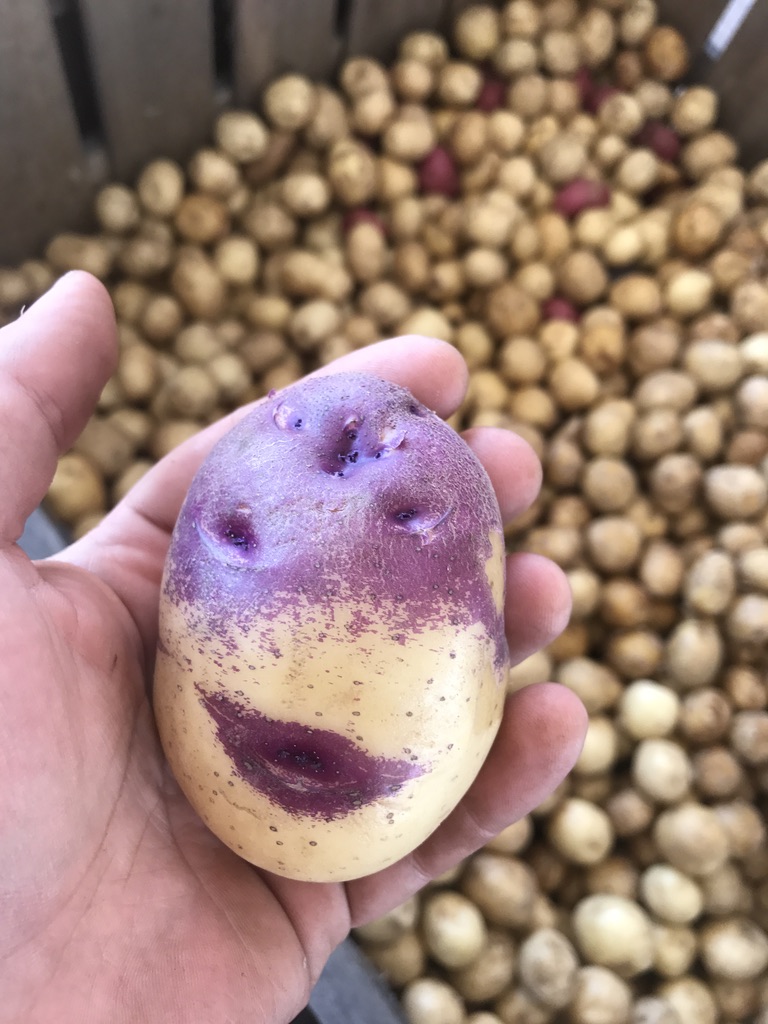For more than 50 years, University of Florida Institute of Food and Agricultural Sciences (UF/IFAS) research and Extension teams have grown potatoes in variety trials at the UF/IFAS Hastings Agricultural Extension Center. In these trials, scientists discover which potatoes will be most productive for Florida growers. For the first time, researchers are using this knowledge to develop new potato varieties to withstand Florida’s challenging growing conditions.

“With variety trials, we can understand how existing varieties perform here in Florida,” said Christian Christensen, director of UF/IFAS HAEC. “Adding a breeding program allows us to take this to the next level to actually create varieties for Florida.”
In Florida, potatoes are planted at the end of winter and harvested in the early summer months, supplying a crop during a gap in the market. This provides Florida producers with unique marketing opportunities but also many production obstacles due mainly to the heat and humidity. UF/IFAS researchers working in the potato-breeding program will produce varieties that can withstand those harsh growing conditions.
“Florida’s environment is really unique compared to other potato-growing environments around the United States,” said Lincoln Zotarelli, UF/IFAS associate professor of horticultural sciences and a researcher on the potato-breeding team. “A breeder in Maine is making decisions for a variety that is as good as it can be around the country but is primarily suited for Maine. We lose opportunities by not having a breeding program here.”
Grower Support
The UF/IFAS program is backed by the support of potato growers across the Tri-County Agricultural Area; three counties, including St. Johns, Putnam and Flagler, located in the northeastern part of the state. They grow more than 20,000 acres of potatoes for potato chips and fresh market consumption.
“We are excited, and growers are excited because it’s an opportunity to provide better varieties for Florida,” said Zotarelli.
In addition to breeding for hardiness to withstand Florida’s environment, researchers currently select varieties that require fewer inputs and produce more for growers.
“We are screening for a variety that is efficient with nutrient use, has high yield, disease resistance and more,” said Zotarelli. “In addition to breeding, we are also investigating management aspects of the crop. This includes growing and harvesting practices for different varieties based on spacing, planting and harvest timing and more.”
Each year, scientists evaluate more than 2,000 potato varieties at the UF/IFAS HAEC. With the breeding program, researchers expect to evaluate an additional 7,500 to 15,000 potential new varieties every year.
“We took last year to put all of the proper steps in place for the breeding program and this year we are scaling up,” said Marcio Resende, UF/IFAS assistant professor of horticultural sciences and potato breeder. “It is a cyclical process that we will keep repeating year after year. It’s a slow process but it is well underway.”
The breeding program kicked off in 2021, and researchers expect the first Florida-bred variety to be available in approximately 7 to 10 years.
“It may take 10 years before we have something fully impactful that reaches growers’ fields,” said Zotarelli. “We are now one of 13 public potato-breeding programs around the country, but this is the first in Florida.”









